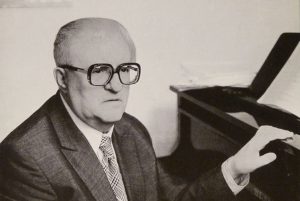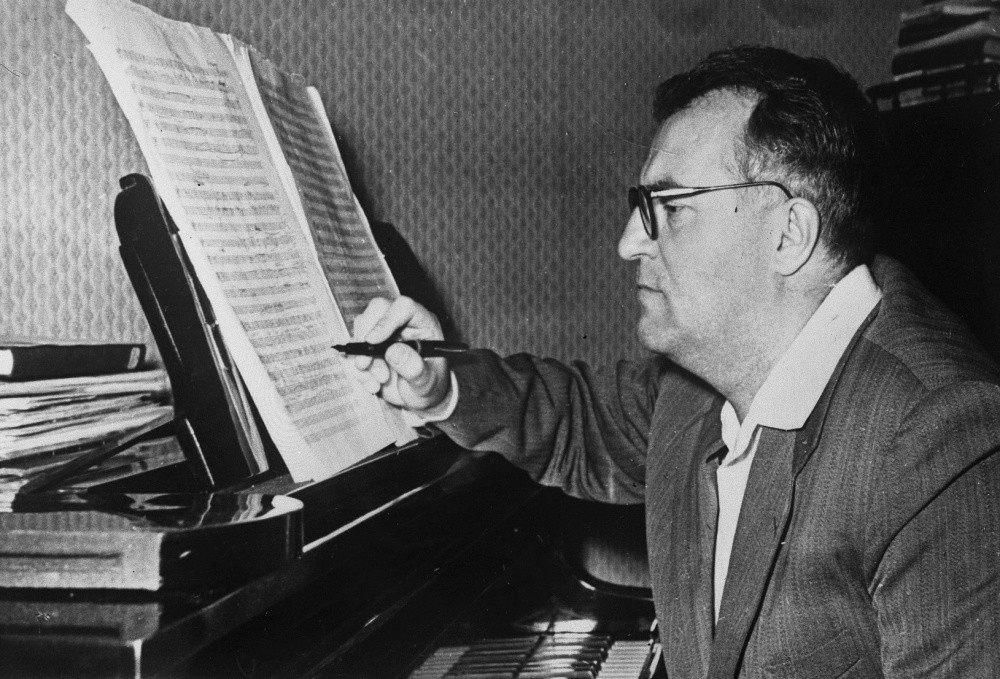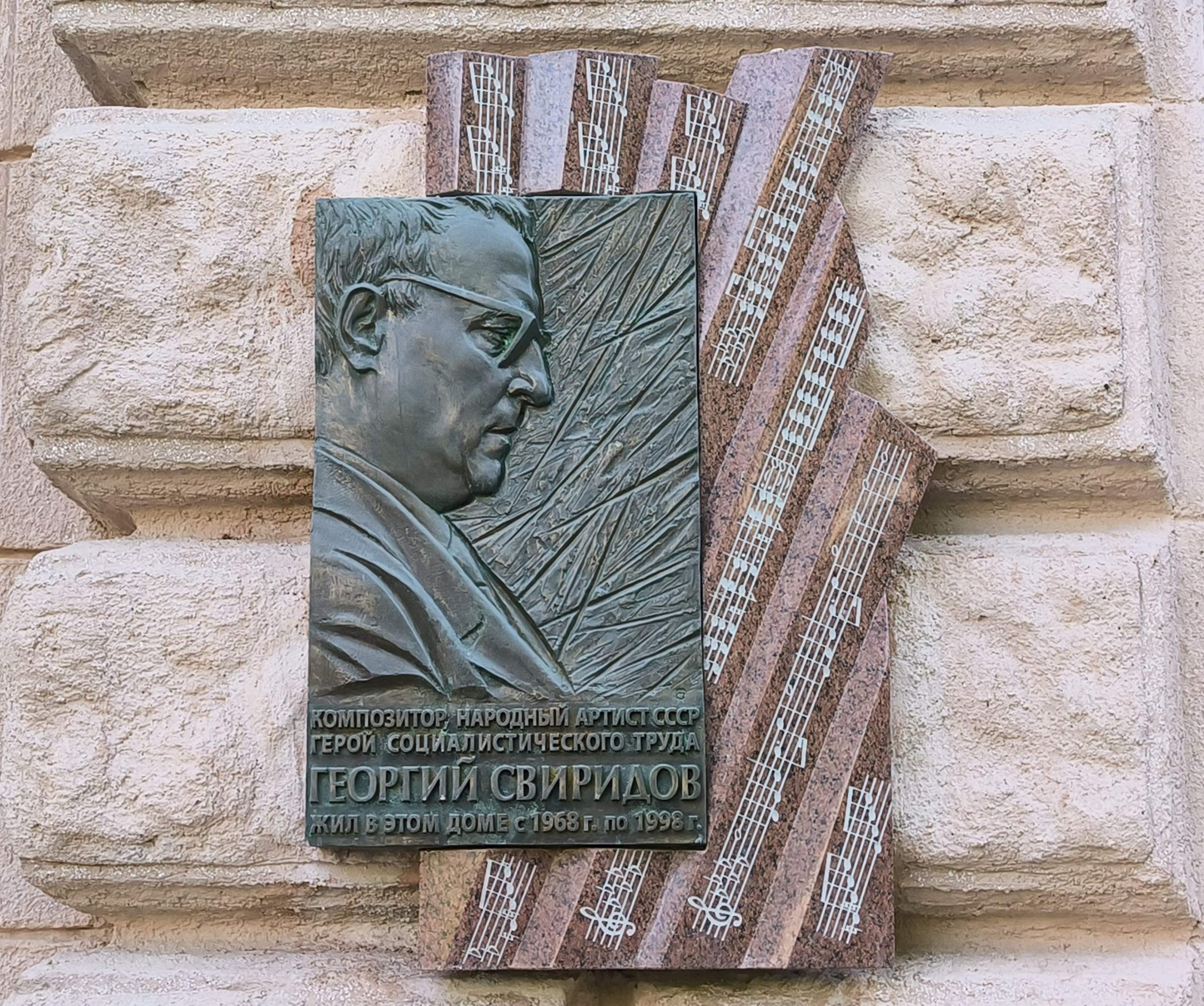Georgy Vasilyevich
Sviridov
1915-1998

Georgy Sviridov was a Soviet composer, pianist, and public figure who made significant contributions to the development of Russian music. He received numerous awards, including the Hero of Socialist Labour, People’s Artist of the USSR, Lenin Prize, Stalin Prize, State Prizes, and the State Prize of the Russian Federation. Sviridov founded the “new folkloric wave” style of music and was born in Fatezha, the Kursk region, in 1915. After his father’s death in 1918 when he was three years old, he moved with his family to Kursk, where he attended school and developed an interest in both literature and music. Music eventually became the focus of his life. From the age of nine, Sviridov began studying to play the piano and later mastered the balalaika, which helped him become a member of a folk instrument ensemble. In 1929, he entered music school where he studied under outstanding teachers who recognized his exceptional talent. In 1932, he moved to Leningrad to continue his musical studies. There, he attended the Central Music College where he studied piano with I. Braudo and composition with M. Yudin. After graduating from college in 1936, he entered the Leningrad Conservatory where he studied composition with prominent composers including Dmitry Shostakovich who had a significant influence on his creative development. In 1941, shortly after completing his studies at the conservatory, Sviridov was drafted into the army but was soon discharged for medical reasons. During World War II, he lived in Novosibirsk where he composed patriotic songs, most notably “The Song of the Brave” based on the poem by A. Surkov. In addition to creating music for theatrical productions, Georgy Sviridov also composed music for theatres that were evacuated to Siberia during the war. After the war, he returned to Leningrad and later moved to Moscow in 1956. In Moscow, he wrote many significant works, including symphonies, concertos, cantatas, vocal cycles, and romances. One of his most well-known works was the musical suite “Blizzard,” based on poems by A. S. Pushkin. He also actively participated in public life, serving as a member of the board of the Union of Composers of the USSR from 1957 and as the first secretary of the Union of Composers of the RSFSR from 1968 to 1973. His work was recognized both within the USSR and abroad, as he was named the “most poetic of modern composers” at the Russian Song Festival in France in 1974. Georgy Sviridov led a long and eventful life, continuing to compose until his last days. His music is deeply connected to Russian culture and tradition, and remains significant to the world of musical art today.
Address: Moscow, Bolshaya Gruzinskaya St., 36, building 3

